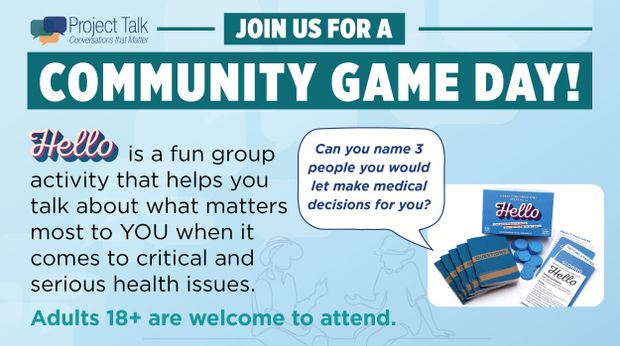Going to a therapist for medication is like going to a urologist with a broken arm – you’ll probably leave with a referral to another provider but no medication and this won’t be the fastest route for addressing your problem.
Read on for a breakdown of different types of mental health providers and what services they do and do not provide.
Psychiatrist
A psychiatrist is a medical doctor (MD or DO) who specializes in the treatment of mental illness. A psychiatrist can determine diagnosis and provide treatment recommendations but generally focuses on prescribing medication to treat mental health symptoms. Psychiatrists do not usually provide therapy or counseling services, however, most are happy to make referrals. Note: Primary care providers can prescribe medication for mental health symptoms as well. If your provider is not comfortable with this, he or she may refer you to a psychiatrist.
But…Who ya gonna call? How do you know when to call a psychiatrist?
- If your child has symptoms of ADHD or related disorders and you’d like them treated with medication, first contact your child’s primary care provider. He or she might prescribe medication or refer you to a psychiatrist if that is outside of his or her comfort zone.
- If you or your child have symptoms of anxiety or depression and you have already tried therapy or are not interested in therapy but might be interested in medication, contact your primary care provider. He or she may feel comfortable prescribing you medications and if not, will refer you to a psychiatrist.
- If you or your child have already tried several medications under the supervision of your primary care provider but your symptoms are not improved or are getting worse, seek a second opinion with a psychiatrist.
- If you have a history of complex mental and physical health problems or are on several medications already, a psychiatrist may be necessary to help you find the right medication.
- Anyone admitted to the hospital for psychiatric reasons or experiencing psychiatric symptoms during a medical inpatient stay will be evaluated by a psychiatrist.
Clinical Psychologist
Clinical psychologists have a doctorate degree (Ph.D. or Psy.D.) and are experts in the field of psychology. Clinical psychologists teach, conduct research, provide psychotherapy services, and provide psychological testing to determine diagnosis and treatment needs. Some clinical psychologists complete court-ordered and custody evaluations. In a few states, psychologists can complete additional specialized training and prescribe medication under the supervision of a psychiatrist; however, this is not yet occurring in Illinois.
When should you call a clinical psychologist?
- If your child has some symptoms of ADHD and you want to know for sure if he or she meets the criteria for this diagnosis, seek a psychologist who provides psychological evaluations and can do testing.
- If your child is having a wide range of emotional, behavioral, and academic difficulties and you aren’t sure where to begin, a psychologist can provide a comprehensive evaluation to determine diagnosis and provide recommendations for treatment and needed services.
- Possible learning disabilities, cognitive problems, or complex mental health or behavioral issues all warrant a call to a psychologist.
- If a judge orders a psychological evaluation, a clinical psychologist would provide this service. Usually the court would make arrangements for this type of evaluation so you wouldn’t need to initiate the evaluation your own.
- It is important to remember that not all clinical psychologists offer the same services. For example, some may provide learning evaluations but not court-ordered evaluations. Others may provide only assessment services and others only therapy.
Social Workers, Counselors, & Therapists
Social workers have master’s degrees in social work, a field designated to provide help to those in need. Social workers work in schools, hospitals, nursing homes, the military, and in mental health centers. The state licenses in Illinois for social workers are the LSW (Licensed Social Worker) and the LCSW (Licensed Clinical Social Worker). Social workers assess, diagnose, and treat mental health disorders. They may run social service agencies and provide advocacy. Social workers can also work in administrative roles in clinics. They do not prescribe medications.
Counselors are clinicians with a master’s degree in one of several different fields including psychology, counseling, community mental health, school psychology, and counseling education. Counselors give guidance for personal, social, behavioral, or psychological problems and work in many different settings. They are trained to assess, diagnose, and treat mental health disorders. The state licenses for a counselor in Illinois is the LPC (Licensed Professional Counselor) and the LCPC (Licensed Clinical Professional Counselor). They also do not prescribe medications.
Note: The education and training of a social worker and a counselor have many similarities but their programs are in different departments and students of each can end up in very different positions after graduation. However, when seeking counseling , you will find both social workers and counselors providing this service as both can be employed as mental health counselors. Often, your insurance will tell you which type of provider is covered and it is wise to start by getting list of approved providers before scheduling an appointment.
Therapist is a term often interchanged with social worker and counselor. You might also see psychotherapist or behavioral health therapist used this way. The term therapist itself refers to any person trained to provide a particular type of therapy. There are many types of therapists – physical, occupational, speech, music, massage, respiratory, and behavioral health are just some of them.
When should you call a social worker, counselor, or therapist?
- If you know your child has ADHD and you want him or her to learn impulse control strategies or you want family therapy to learn to work with your child’s symptoms, start by contacting your insurance company to find out which therapists/counselors/social workers are covered in your area.
- If you are experiencing anxiety or depression symptoms and want to learn coping strategies for reducing or management your symptoms, therapy with a social worker or counselor is the way to go.
- If you have experienced a trauma and it is having a negative impact on your day to day life, seek counseling services.
Case Worker
A case worker or care manager typically has a bachelor’s degree or higher in a social service or healthcare field and works to provide patients with advocacy, information, and to make connections to necessary supports and services. Case managers might work in mental health centers, for the Department of Child and Family Services (DCFS), or in hospitals and clinics. Typically, case workers and care managers are assigned to people as needed to address financial, social, or health related difficulties. Often doctors, psychiatrists, social workers, and counselors will refer their patients to case/care managers for additional assistance.
Thanks for reading!
Next week’s post will focus on the pros and cons of medication versus therapy to treat specific types of mental health symptoms.
Until then,
Nikki
Health Topics:







